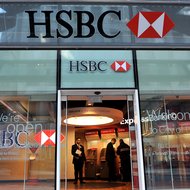Wall Street opened lower Wednesday, joining European markets, as investors continued to question the longevity of the Federal Reserve’s stimulus program.
In early trading the Standard Poor’s 500-stock index fell 0.7 percent, the Dow Jones industrial average was also 0.7 percent lower, and the Nasdaq composite was 0.6 percent lower.
Supportive monetary policies from central banks around the world have lifted equity markets this year, with the S.P. 500 up more than 16 percent. On Tuesday, stocks soared and the Dow closed at another record high after the Bank of Japan and European Central Bank reassured investors that policies designed to boost economic growth would stay in place.
Last week, indexes fell on concerns that the program may be scaled back sooner than expected, and strong economic data on Tuesday stirred speculation that the Fed may begin tapering off its program soon. The concerns sent United States Treasury debt yields to their highest levels in over a year and pulled equities back from session highs.
Tuesday “was the first time we saw rates spike on concerns about the Fed tapering, and if that spreads, it will have negative ramifications for the rest of the market,” said Adam Sarhan, chief executive of Sarhan Capital in New York.
While strong corporate earnings have also contributed to the equity market’s surge in 2013, central bank stimulus has pushed investors to add to positions on market declines, limiting extended sell-offs. So, any change to the stimulus program may prompt a round of profit taking.
“There’s still a question about how much we can grow without stimulus, and what will happen to the market when rates go up,” Mr. Sarhan said.
In company news, Smithfield Foods surged 24.7 percent in early trading after China’s Shuanghui Group agreed to buy the company for $34 a share.
Shares of Trina Solar Ltd traded in the United States 5.8 percent after the company reported its seventh straight quarterly loss.
Apple’s chief executive, Timothy D. Cook, said late Wednesday he expected the company to release “several more game changers,” hinting that wearable computers could be among them. Apple shares rose 0.4 percent.
In Europe, shares and bonds fell across the board as Tuesday’s robust economic data out of the United States fanned speculation the Federal Reserve may soon begin tapering back its bond-buying program.
The FTSE Eurofirst 300 index of top European shares was down 1.3 percent, giving back the previous day’s 1.3 percent gain.
In Asian markets, Tokyo’s Nikkei and the Shanghai composite both ended the day 0.1 percent higher, but the Hang Seng in Hong Kong fell 1.6 percent.
The dollar, which has been rising on bets on a reduction in Fed stimulus, hovered near three-year highs against most major currencies, held in check by a stronger yen.
The yen, often used as a safe haven by investors, gained as stocks fell, rising around 1 percent at 101.29 to the dollar
Article source: http://www.nytimes.com/2013/05/30/business/daily-stock-market-activity.html?partner=rss&emc=rss


